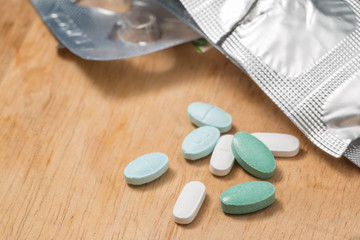Prevalence of ED in Younger Age Groups (20–29 years, 30–39 years)
Erectile dysfunction (ED) is often viewed as a condition associated primarily with older age groups, but in reality, it is something that can and often does affect younger men.It is a common misconception that ED only happens with age and that it exclusively affects older adults.Contrary to these beliefs, various studies show that ED is not an uncommon condition among younger men.
ED affects approximately 8% of males aged 20–29 years and around 11% of those aged 30–39 years.
Erectile Dysfunction in 25-year-olds
Focusing on those at the age of 25, evidence suggests that a significant portion of young adults experience symptoms of ED. The 2019 Kings College review cites a Brazilian study which found that ED was experienced by 36.5% of 18–25-year-olds. Other estimates show that up to 30% of men under 40 experience erectile dysfunction. Therefore, a 25-year-old man experiencing symptoms of ED is not an isolated case.
Increase in Under 40s Seeking Medical Attention for ED
Interestingly, data also suggests that the number of people under 40 seeking medical attention for ED is increasing. Despite societal expectations and stereotypes, the reality is that young men are acknowledging their struggles with ED and are proactively seeking medical intervention to address this issue.
Common Causes of ED
 ED is not a condition with a singular cause. Instead, there are a variety of factors, both physical and psychological, which can lead to issues with erectile function. Physical factors can include cardiovascular health problems, which can impede blood flow and thus impact erectile function. Psychological factors such as performance anxiety and depression can also contribute to ED.
ED is not a condition with a singular cause. Instead, there are a variety of factors, both physical and psychological, which can lead to issues with erectile function. Physical factors can include cardiovascular health problems, which can impede blood flow and thus impact erectile function. Psychological factors such as performance anxiety and depression can also contribute to ED.
Moreover, lifestyle choices can play a significant role in the development of ED. Obesity, alcohol or tobacco use, and drug abuse are frequently associated with erectile difficulties. Certain medications, including some types of antidepressants, may also contribute to ED as a potential side effect.
Strategies for Managing and Improving ED
The most common medical treatment for men with ED is the use of PDE-5 inhibitors. These drugs increase blood flow to the penis, helping achieve an erection. However, they require stimulation or sexual arousal to work effectively.
Beyond pharmacological interventions, there are several strategies one can adopt to manage and possibly improve the symptoms of ED. Improving diet and maintaining a healthy weight can enhance cardiovascular health and thus potentially alleviate symptoms of ED. A good quality of sleep is also beneficial to general health and can positively affect erectile function.
Therapy can be valuable, particularly for those where psychological stress, anxiety, or depression contribute to their ED. Reducing alcohol and drug use, managing stress, and engaging in regular exercise are all lifestyle modifications that can help improve erectile function.
How these Strategies Boost Overall Health
These strategies not only aid in the management of ED but can also significantly improve overall health. A balanced diet, regular exercise, stress management, and adequate sleep all contribute to improved health outcomes in various areas, from cardiovascular health to mental well-being. It is important to note that while these strategies may not cure ED, they can play a significant role in managing its symptoms and enhancing overall health.
- can hiv patient viagra?
- has anyone died from taking viagra?
- best kamagra price
- is viagra a contraceptive?
- how many viagra a week is safe?
- can viagra be prescribed on nhs?
- do adhd pills give you erectile dysfunction?
- how common is priapism with viagra?
- what are the side effects of herbal viagra?
- how does viagra affect the brain?
- ما الذي يمكنني أخذه لجعل الفياجرا تعمل بشكل أفضل?
- causes and definition of organic erectile dysfunction.
- ed ruined my marriage
- is levitra an antidepressant?
- what is the drug class or classification of sildenafil?
- male sexual dysfunction. erectile dysfunction.